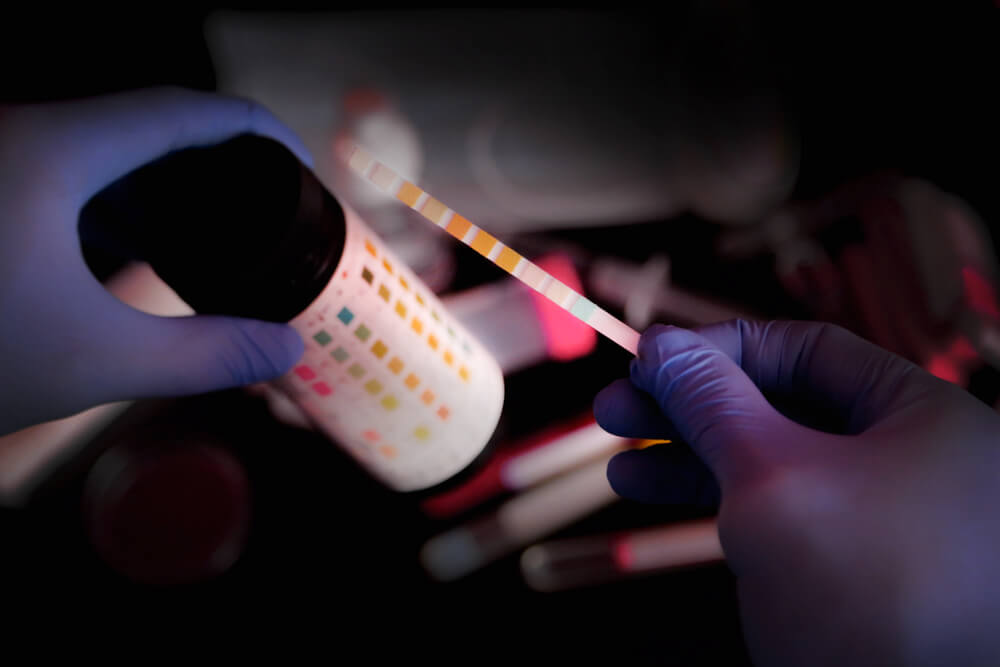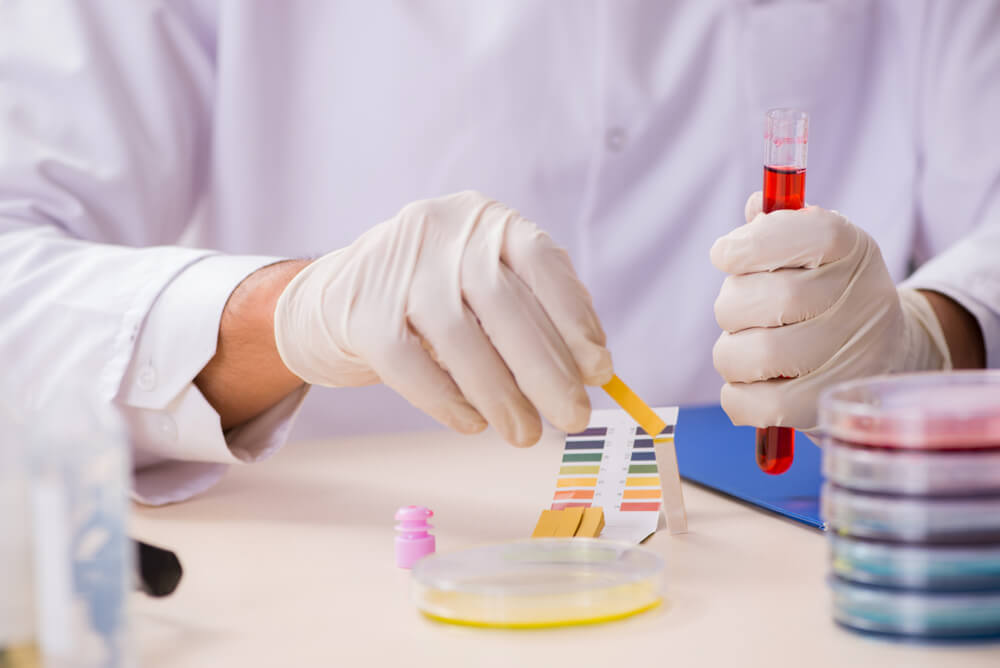By understanding saliva pH and the way it affects oral health, individuals can keep their teeth and gums as healthy as possible. To avoid symptoms from bad breath to gum disease, a balanced pH is essential.
What Is the pH of the Mouth?
In a healthy mouth, the normal pH of saliva is 7.4, but a range of 7.0 to 7.5 is the goal range.
When the pH gets down to the 6.25 to 6.75 range, there is cause for concern. In this range, some mild lifestyle adjustments can help prevent the side effects of unbalanced saliva pH.
When the range falls below 6.25, there is a greater cause for concern. This requires bigger corrective steps, particularly to avoid falling below 5.5, where serious side effects may present themselves.
What the pH of Saliva Means
When you’re taking a deeper dive into your health, you have questions. What is the pH of the mouth? This is a great question, but really understanding it requires a bit of basic background knowledge.
In chemistry terms, pH is a measurement tool for the acidity or basicity of a liquid. The numbers range from 0 to 14. A substance like battery acid has a pH of 0, and liquid drain cleaner has a pH of 14.
Clean and pure water has a pH of 7. That number is fairly neutral, not being too acidic or basic.
The substances we eat and drink have a large effect on mouth pH levels. For example, dentists regularly advise patients that sugary sodas are bad for their dental health. To better understand why that is, one could look at the pH involved in these drinks. While most sodas have a very low pH, often in the 4.5 range, Coke and Pepsi both have a pH of 2.5.
Remember that the normal pH of saliva is between 7.0 and 7.5. When a person drinks pure water, they’re drinking a liquid with a pH of 7.0, keeping their mouth at a balanced and neutral place. This creates an environment in the mouth where minerals are able to thrive, and damage isn’t done to the teeth or gums.

Side Effects of Abnormal Saliva pH
When the pH of saliva becomes too acidic or trends toward too alkaline, there are some telltale signs.
Abnormal saliva pH may result in bad breath. This is because unbalanced pH allows unhealthy bacteria to grow in the mouth, causing an unpleasant odor.
Another common side effect is hot or cold sensitivity in the teeth. This is often caused by either tooth erosion or loss of enamel, which commonly happens with low pH in saliva.
Other consequences of unbalanced mouth pH include cavities and even gum disease.
Why does all of this happen? Part of this is the result of acidity wearing down the teeth and eating away at the enamel and gums. The other part is that a mouth with low pH levels won’t have healthy minerals, which protect the gums and teeth. The healthy minerals in your teeth need a balanced and normal pH of saliva to stay strong and keep the mouth safe from threats like bacteria and acids.
What Is a Saliva pH Test?
Once you better understand the importance of balanced pH for your dental health, you may want to know what yours is. Your dentist may suggest a saliva pH test if you are experiencing symptoms like an excess of cavities, bad breath, or gum disease. This test can give you an idea of where you’re at with your dental health.
Fortunately, taking one of these dental health tests is easy to do. Your dentist will have a pH test strip. Your job will be to not eat or drink anything at least 30 minutes before your test.
Then, you will let some saliva pool in your mouth. Spit that mouthful out. Then, let your saliva pool again. This may take a few minutes.
The next step is to apply saliva to the test strip. You’ll only have to wait a minute or two for the strip to change colors. Your dentist will then help you match the colors on your test strip to that on a pH chart.
From there, you’ll learn what is the pH of the mouth, and your dentist will be able to discuss what that means for your individual health.
Why Patients Choose to Take a Saliva pH Test
Individualized results and what they can mean for the future of a person’s oral health are the real reasons patients choose to take a saliva pH test. Armed with the real data that shows what is happening inside your mouth, your dentist can create a customized treatment plan to improve your health.
If you are starting to show signs of unhealthy bacteria, like bad breath, a pH test can tell just how far off balance your oral health is. If it’s only slightly off, then your dentist can make recommendations of small changes. If, instead, the pH is far off base, you’ll actually need a more thorough treatment plan to restore balance and avoid serious effects like tooth erosion.
The more data you have, the better your treatment plan will be.
Tips to Restore pH Levels of the Mouth

Lifestyle adjustments can make a large difference in balancing the pH of your saliva, especially in terms of what you eat and drink.
For example, avoiding sugary drinks and opting for water instead can make a huge difference. However, if you are going to drink a latte or soda, don’t sip on it. Instead, drink the beverage in one go. When you’re done, swishing a little water around in your mouth can help.
In general, avoid snacking and sipping drinks with a low pH throughout the day. It takes 10 minutes for your normal pH to restore itself after you’ve consumed something new. Lowering the frequency of those occurrences can keep your mouth more balanced.
Drinking a lot of pure water is a great way to rebalance your pH.
Finishing a meal with some cheese can help balance out your mouth. If you enjoy the idea of finishing dinner with a Camembert, which has a pH of 7.5, go for it.
Maintaining a regular schedule with your dental appointments is always the best thing you can do for your dental health. Your dentist will be able to help you monitor your pH levels, watch for the effects of bad bacteria, and keep you on track.
Understanding What a Balanced Mouth Means Is the First Step
Many people go through their lives without ever understanding how their saliva affects their dental health. Knowing this information can help you keep your teeth and gums healthy, so you are now well on your way to improved dental hygiene.
Do you feel like you understand your next steps in protecting your dental health? We’d like to hear what your concerns are for your teeth and gums. To get a personalized treatment plan for your dental health, call to schedule an appointment today.


